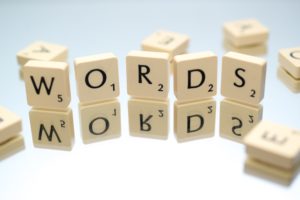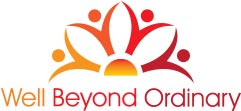 Like the disease, the language of cancer is complex and unique. It’s filled with potential landmines and what works for one person doesn’t necessarily work for another. I get it. As a coach, I believe strongly in the power of language, the words we choose and the energy they generate for us.
Like the disease, the language of cancer is complex and unique. It’s filled with potential landmines and what works for one person doesn’t necessarily work for another. I get it. As a coach, I believe strongly in the power of language, the words we choose and the energy they generate for us.
While attending the Cancer Treatment Centers of America 2013 Blogger Summit, there was a moment with some of my fellow bloggers where it looked like we might get to generate a sidebar conversation about this topic. But the unique direct access to medical experts and the extremely full panel discussion schedule preempted this. So, in honor of those who shared a table with me in Arizona, here’s my exploration of the language of cancer…

Leading Health Bloggers ‘n Advocates at #CTCAAZ Blogger Summit 2013
Words can be both inspiring and limiting. They are only one small part of our larger experiences. You can’t touch them or taste them, yet we expect them to capture and communicate our deepest experiences, our greatest hopes, our most humbling moments as well as our extraordinary ones. It’s a lot to ask a collection of single letters that, on their own, have no meaning.
In my work with clients, I support them in finding the terms that energize and inspire them. If surviving is not enough for them, they may choose to consider themselves a cancer thriver. They may or may not wish to fight cancer. They may choose to talk about overcoming it or healing from it.
To some, cancer journey or the “new” normal is like nails on a chalkboard. Others cringe when they hear cancer warrior or other battle terms. Whether we prefer to wax poetic leaning toward phrases like living with and beyond cancer or go raw ‘n real with F&*k Cancer, the reality is for those of us bridging the medical world with the experience of the patient, survivor and caregiver, we must use a consistent, relatable and widely accepted group of terms to advocate and raise awareness.
Personally, I’m all about thriving and it is how I commonly express about the transition from surviving cancer to living as full and extraordinary life as possible in spite of the challenges it brings. But I can’t sit at the table with Boards of Directors, physicians, healthcare executives and other stakeholders and talk about thrivorship programs.
It is enough of a task to educate about cutting edge approaches like coaching for survivors, never mind attempting to rename an established word that has been defined and accepted by the National Cancer Institute and more. Transforming patient to survivor and expanding the definition to include caregivers and family members took years of re-education.
Language can burden us or it can create an efficient way to be sure we are clearly speaking to the same concern. I choose not to believe anyone is out to offend with the terms they use. Personally, outside of the medical world, I rarely use the term patient. But once inside, patient has a designation that distinguishes someone in active treatment from someone living post-treatment in survivorship. Does this mean the medical staff doesn’t see patients as survivors? Certainly not. It means what we make it mean. When I mention the “new” normal on my site or in a blog, am I attempting to suggest that there is anything at all normal about life after cancer? Hell, no. But I have to call it something.
What can we do about the language of cancer? First of all, don’t give away your power to it. Use the terms that do empower you and use them consistently. Those in your circles will notice and tend to follow your lead when engaging with you. If they don’t and you prefer certain terms, then be transparent and ask for what you need. Let them know that what inspires you is thriver instead of survivor…or cancer fighter without taking it personally if someone forgets or if a speaker, blogger or medical team member uses something different. There is no intention to harm; there is only a desire to communicate. Do not let the limitations of letters strung together cause you stress or drain your energy. That is much better spent on healing, doing things you enjoy and living your life.
Ultimately the impact you allow language to have on you is your choice.

